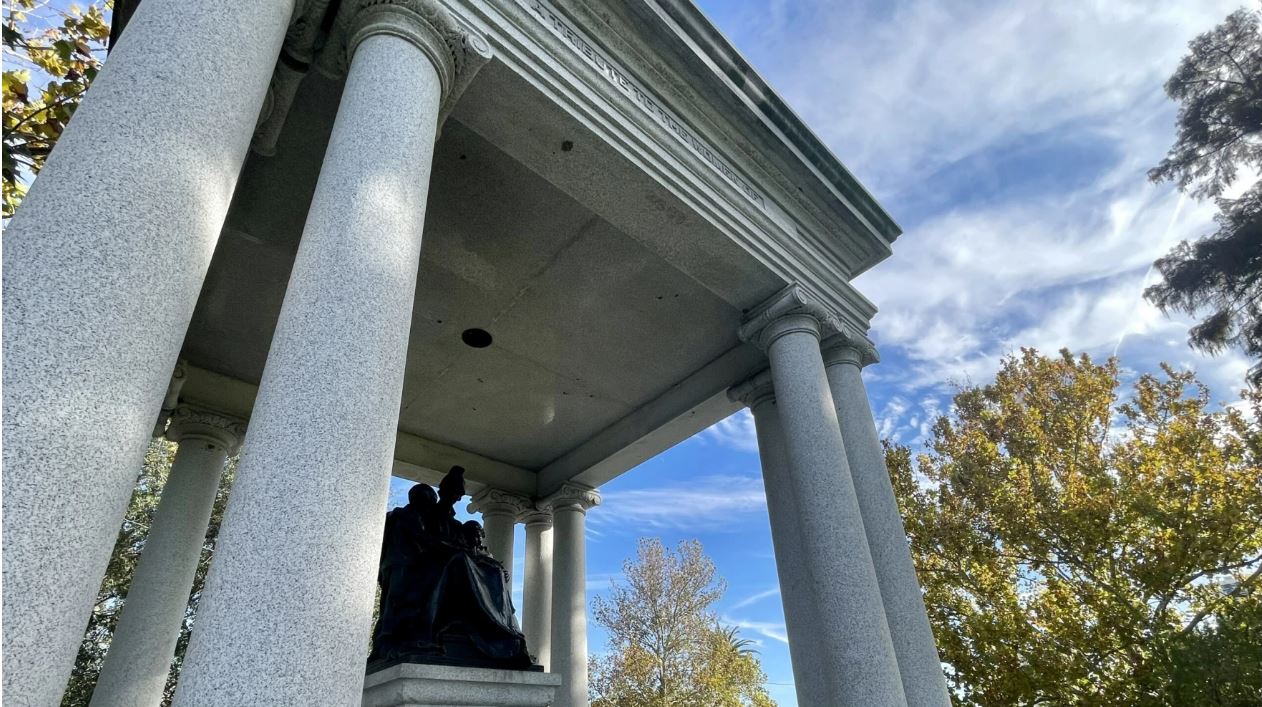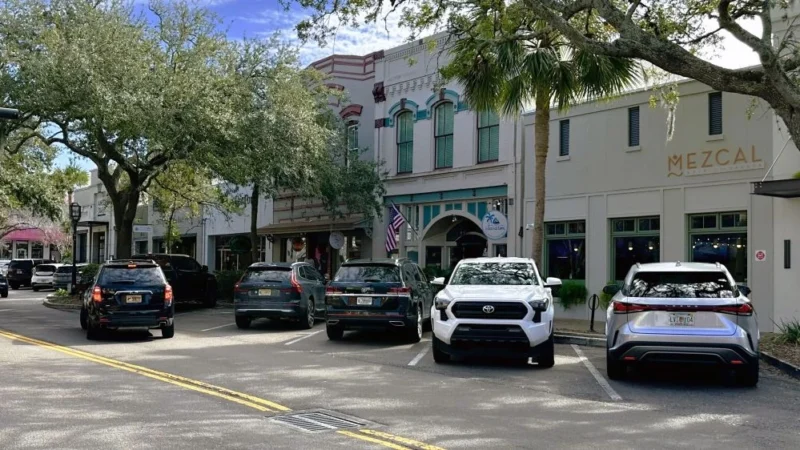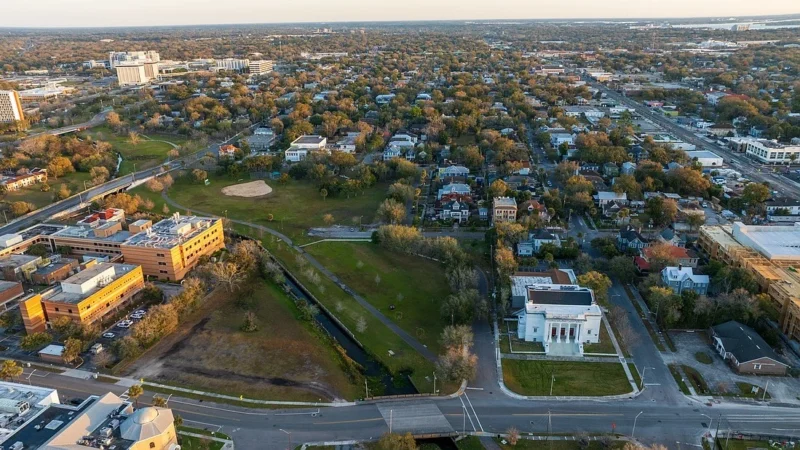A local civil rights activist faced a three-judge federal appeals court on Friday, fighting to resurrect his 2021 lawsuit meant to bar the city and state from spending funds to preserve public tributes to Confederates after it was dismissed.
Earl Johnson Jr. argues that Confederate tributes on public land, supported by his tax dollars, violate the U.S. Constitution and the Civil Rights Act of 1964. And as a Black descendant of enslaved people, he says that these are “symbols of White supremacy ideology that demean, belittle, and diminish him.”
The monuments, Johnson argues, infringe on his federal rights to be free from racial discrimination in public places.
His July 2021 suit was dismissed in June 2023 by U.S. District Judge Marcia Morales Howard, who said that he had no standing. But the dismissal did not rule on whether its arguments had any merit. The judge’s decision came after city and state lawyers asked the federal courts to dismiss Johnson’s case in a 2021 hearing.
Even after the 108-year-old Tribute to the Women of the Southern Confederacy statue was taken off its base in late 2023 in Springfield Park, Johnson believes he has legal standing for an appeal because he is being injured by any of these monuments, a stigmatic injury “that is real,” he said.
“A stigma is a symbol of negativity based on one’s person, and so what the Constitution does in the 13th, 14th and 15th amendments, often referred to as the Civil Rights amendments, is to protect against that stigma,” Johnson said on Thursday’s First Coast Connect on WJCT News 89.9.
“The 13th Amendment says slavery is abolished; but it also says that the badges of slavery are abolished, the stigma of slavery is abolished,” he said.
But Jon Phillips, the former Senior Assistant General Counsel who defended the lawsuit on behalf of the city, still believes the claim has no merit.
“There are certain things that are just not legally appropriate for litigation,” Phillips said on the same program. “Of course, people can disagree with that, and I know Mr. Johnson disagrees, but we felt it was pretty clear that he did not have standing.”
Johnson organized the nonprofit Take It Down Inc. to lobby for the removal of Confederate monuments on Jacksonville’s public land. His late father was the Hall of Fame civil rights attorney Earl M. Johnson, who represented Martin Luther King Jr. and helped desegregate Florida schools and public places in the 1960s.
Along with contending that Confederate monuments on public property violate the Constitution and Civil Rights Act, Johnson’s original lawsuit argued that spending taxpayer money for tributes to the Confederacy violates the U.S. Constitution’s 13th and 14th Amendments. Johnson said that he should have the right to be free of any vestiges of slavery.
Government attorneys argued in federal court in November 2021 that Johnson did not demonstrate a real threat to himself that had to be solved by the courts, and asked for his original suit to be dismissed. In June 2023, Howard dismissed Johnson’s suit.
When his suit was filed, Springfield Park was still home to the statue honoring Confederate womanhood, while there was an empty pedestal in James Weldon Johnson Park outside City Hall that until recently had held up a statue of Confederate Civil War veteran.
The Confederate monument at Springfield Park has since been removed, in late 2023 by Mayor Donna Deegan with funding from the Jessie Ball duPont Fund and anonymous donors to 904WARD, a nonprofit organization that promotes racial equity in Jacksonville. Former Mayor Lenny Curry ordered the overnight removal of the Confederate statue in what is now James Weldon Johnson Park. The pedestal was later removed by the Deegan administration.
During Thursday’s radio appearance, Phillips agreed that Confederate monuments are “offensive to some people,” but probably not everyone.
“I personally am not in favor of Confederate tributes,” Phillips said. “The issue in this lawsuit was for us at the city, was whether Mr. Johnson had standing and whether this is an appropriate way to deal with it as opposed to the political process. I would note that one of the statues on James Weldon Johnson Park was taken down before this lawsuit was filed, and the Confederate Women monument was taken down after the suit was dismissed, so the lawsuit didn’t move the needle. The political process did.”
But Johnson said he still believes his suit is an appropriate test of the Civil Rights Act of 1964, which says “people must be free from racial, religious, those kinds of discriminations in public places.”
“Public accommodations are obviously places like schools, parks, and it also includes streets, roads, names of counties, for example,” Johnson said. “And the lawsuit … claims that there are over 40 Confederate tributes within the Middle District of Florida, which runs from Jacksonville southwest; it includes Orlando and Tampa, all the way to Fort Myers. Within that swath of Florida, I am claiming that Confederate monuments are symbols of white supremacy.”
Wells Todd, founder of Take ‘Em Down Jax, and Kelly Frazier, President of the Northside Coalition of Jacksonville, joined Johnson at Friday’s appeals court hearing. Both Todd and Frazier, daughter of the late civil rights activist Ben Frazier, have long advocated for the removal of Confederate tributes from public land.







